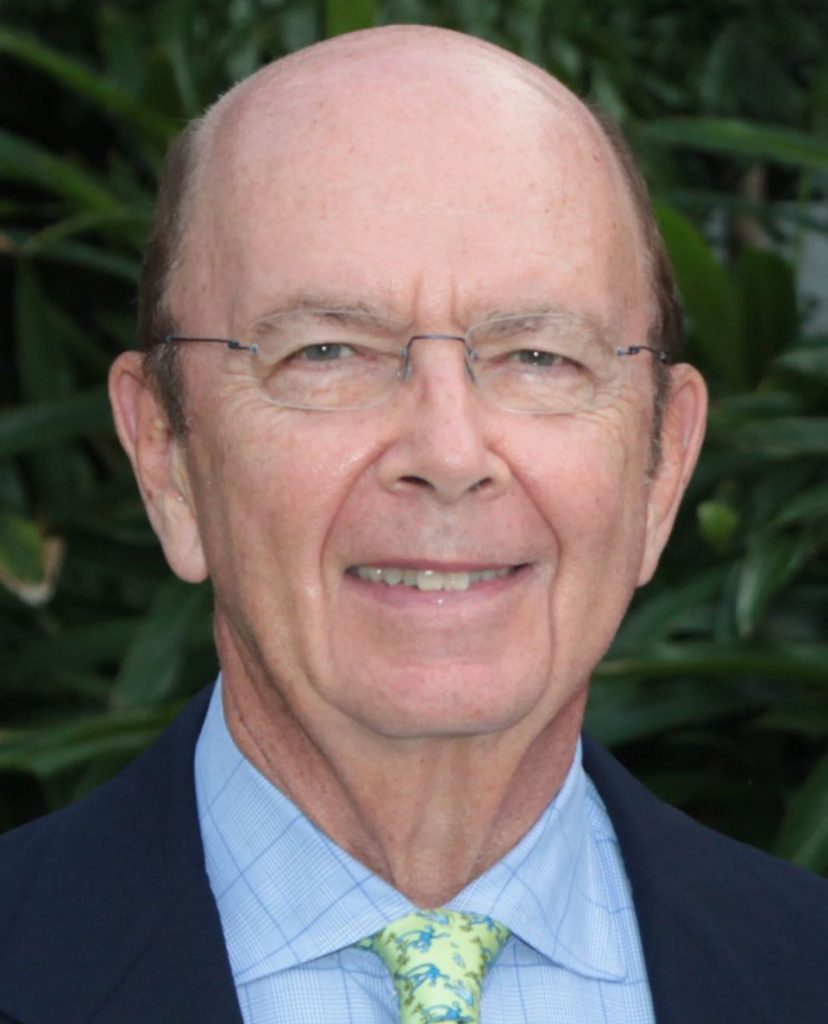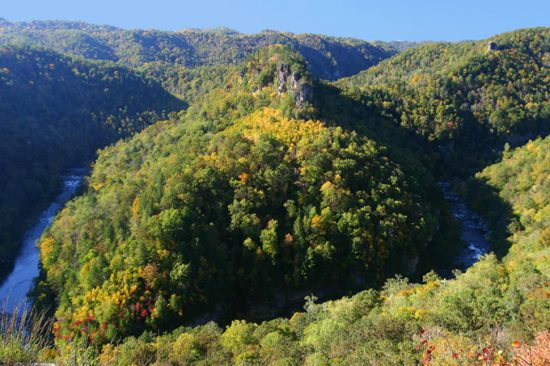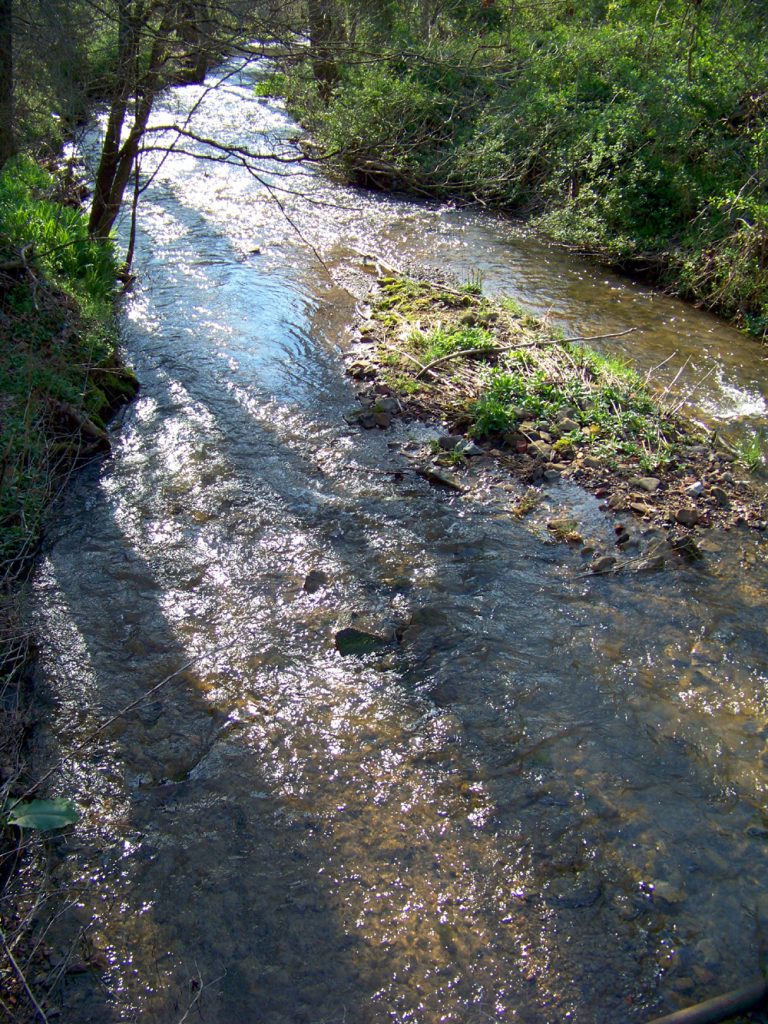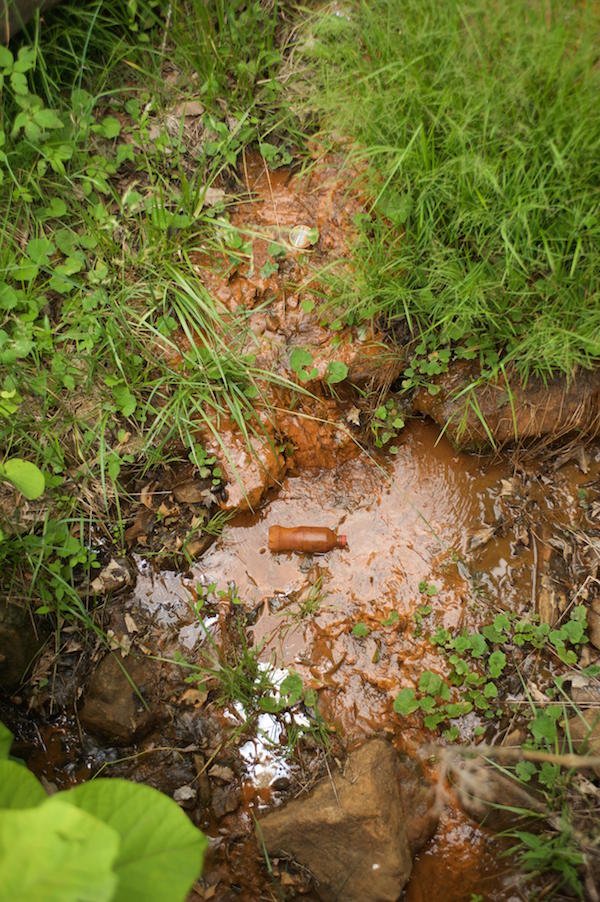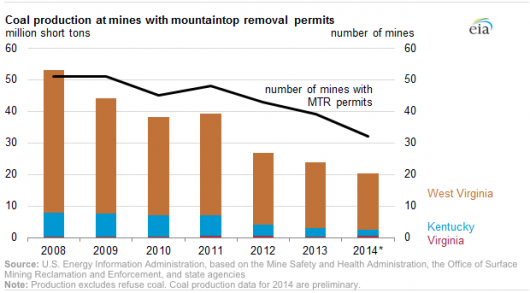Written by Erin Savage
Erin Savage
While Erin prefers to be on rivers rather than at a desk, as our Central Appalachian Program Manager she devotes a lot of time delving through data to make it meaningful to others who care about the health of our waterways.
Trump’s pick for Commerce has troubled history in coal
Wilbur Ross — a man who helmed a large Kentucky coal company with a troubled history of environmental and miner safety violations — has been chosen to be the next U.S. Secretary of Commerce. If President-elect Trump truly believes that economic growth and opportunity can only be gained at the expense of worker safety, community health and clean water, he could make no better pick than Ross.
Protecting a unique Kentucky fish from mountaintop removal coal mining
The eye-catching Kentucky arrow darter was just listed as threatened under the Endangered Species Act, largely due to water pollution from activities like surface coal mining. Increased protection for this rare fish will lead to healthier ecosystems and communities.
A growing mine is a growing problem for the Russell Fork River
The history of the Doe Branch mine in Southwest Virginia is long and complicated, and its future remains unclear. A bankruptcy saga with the mine’s previous owner stalled development in the past year, but things appear to be getting back on track — putting the Russell Fork River at risk.
Another step toward clean water in Southwest Virginia
Through a settlement with Penn Virginia Operating Company, a large landholding company, and A&G Coal Corp., a Jim Justice-owned company, several sources of the toxic pollutant selenium in Wise County, Va., will be cleaned up.
An end to Frasure Creek’s water violations in Kentucky — finally
Late Monday evening, Appalachian Voices and our partners finalized a historic settlement in our case against Frasure Creek Mining. The settlement follows a five-year-long legal battle to protect eastern Kentucky’s waterways and bring a coal company notorious for violating environmental laws to justice.
Understanding the Stream Protection Rule
While the draft Stream Protection Rule is far from perfect, it is a long overdue update to protections for surface and groundwater from mountaintop removal coal mining. Not surprisingly, the coal industry had relied on “war on coal” talking points to fight against the rule, and claims these protections are unnecessary and will undermine an otherwise viable industry. Let’s examine those claims.
How much progress are we making on ending mountaintop removal?
Last week, the U.S. Energy Information Administration pointed to a steep decline in coal produced by mountaintop removal mining. But
a closer examination of the data calls into question the adequacy of the legal definition of “mountaintop removal” and, more importantly, demonstrates that much more work is needed to truly end destructive mining practices in Central Appalachia.
Coalition Acts to End Water Pollution at Former Coal Mines
For Immediate Release July 30, 2012 – –…

